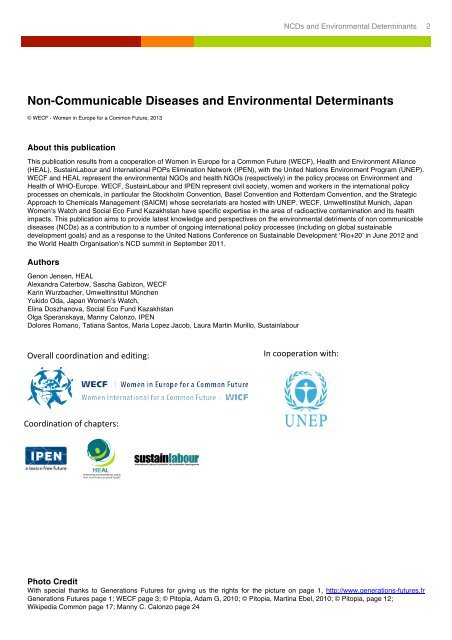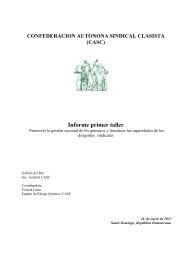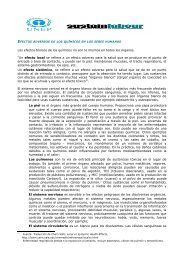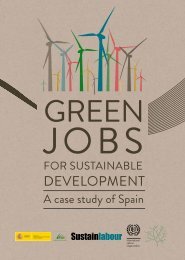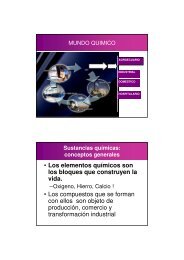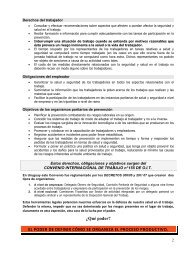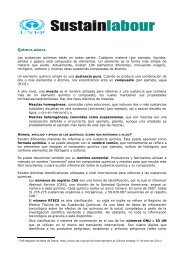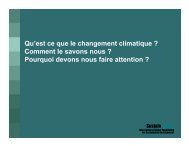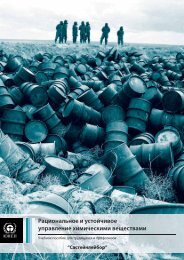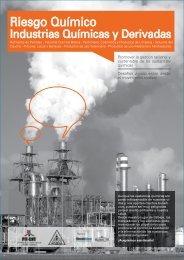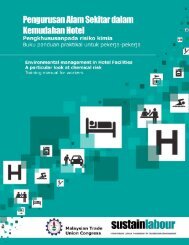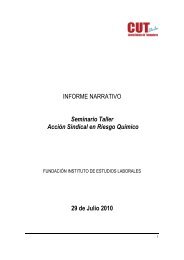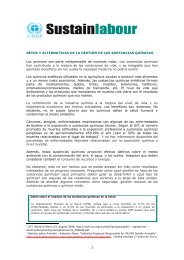Non-Communicable Diseases and Environmental Determinants
Non-Communicable Diseases and Environmental Determinants
Non-Communicable Diseases and Environmental Determinants
Create successful ePaper yourself
Turn your PDF publications into a flip-book with our unique Google optimized e-Paper software.
NCDs <strong>and</strong> <strong>Environmental</strong> <strong>Determinants</strong> 2<br />
<strong>Non</strong>-<strong>Communicable</strong> <strong>Diseases</strong> <strong>and</strong> <strong>Environmental</strong> <strong>Determinants</strong><br />
© WECF - Women in Europe for a Common Future, 2013<br />
About this publication<br />
This publication results from a cooperation of Women in Europe for a Common Future (WECF), Health <strong>and</strong> Environment Alliance<br />
(HEAL), SustainLabour <strong>and</strong> International POPs Elimination Network (IPEN), with the United Nations Environment Program (UNEP).<br />
WECF <strong>and</strong> HEAL represent the environmental NGOs <strong>and</strong> health NGOs (respectively) in the policy process on Environment <strong>and</strong><br />
Health of WHO-Europe. WECF, SustainLabour <strong>and</strong> IPEN represent civil society, women <strong>and</strong> workers in the international policy<br />
processes on chemicals, in particular the Stockholm Convention, Basel Convention <strong>and</strong> Rotterdam Convention, <strong>and</strong> the Strategic<br />
Approach to Chemicals Management (SAICM) whose secretariats are hosted with UNEP. WECF, Umweltinstitut Munich, Japan<br />
Women’s Watch <strong>and</strong> Social Eco Fund Kazakhstan have specific expertise in the area of radioactive contamination <strong>and</strong> its health<br />
impacts. This publication aims to provide latest knowledge <strong>and</strong> perspectives on the environmental detriments of non communicable<br />
diseases (NCDs) as a contribution to a number of ongoing international policy processes (including on global sustainable<br />
development goals) <strong>and</strong> as a response to the United Nations Conference on Sustainable Development ‘Rio+20’ in June 2012 <strong>and</strong><br />
the World Health Organisation’s NCD summit in September 2011.<br />
Authors<br />
Genon Jensen, HEAL<br />
Alex<strong>and</strong>ra Caterbow, Sascha Gabizon, WECF<br />
Karin Wurzbacher, Umweltinstitut München<br />
Yukido Oda, Japan Women’s Watch,<br />
Elina Doszhanova, Social Eco Fund Kazakhstan<br />
Olga Speranskaya, Manny Calonzo, IPEN<br />
Dolores Romano, Tatiana Santos, Maria Lopez Jacob, Laura Martin Murillo, Sustainlabour<br />
Overall coordination <strong>and</strong> editing: <br />
In cooperation with: <br />
Coordination of chapters: <br />
Photo Credit<br />
With special thanks to Generations Futures for giving us the rights for the picture on page 1, http://www.generations-futures.fr<br />
Generations Futures page 1; WECF page 3; © Pitopia, Adam G, 2010; © Pitopia, Martina Ebel, 2010; © Pitopia, page 12;<br />
Wikipedia Common page 17; Manny C. Calonzo page 24


